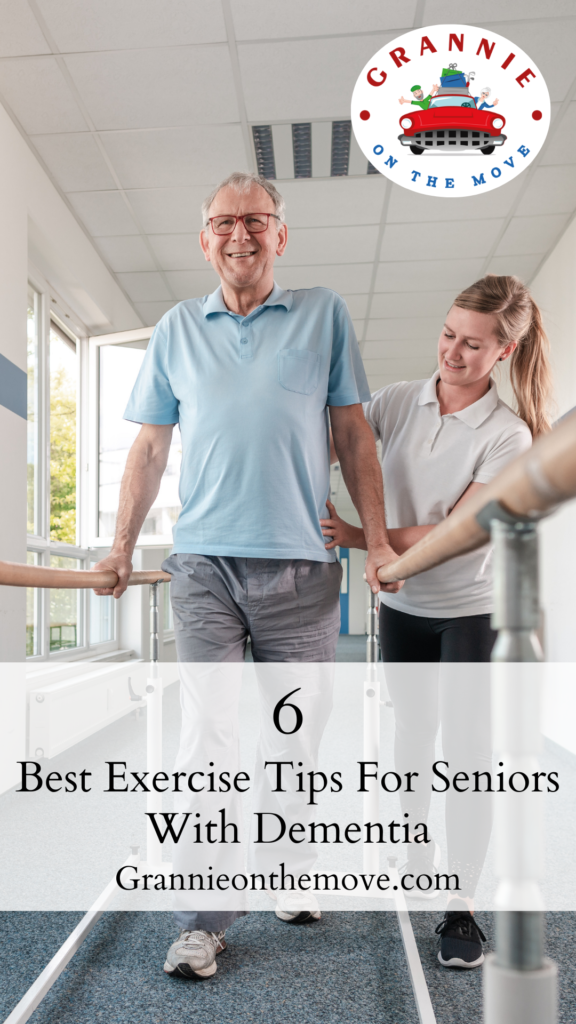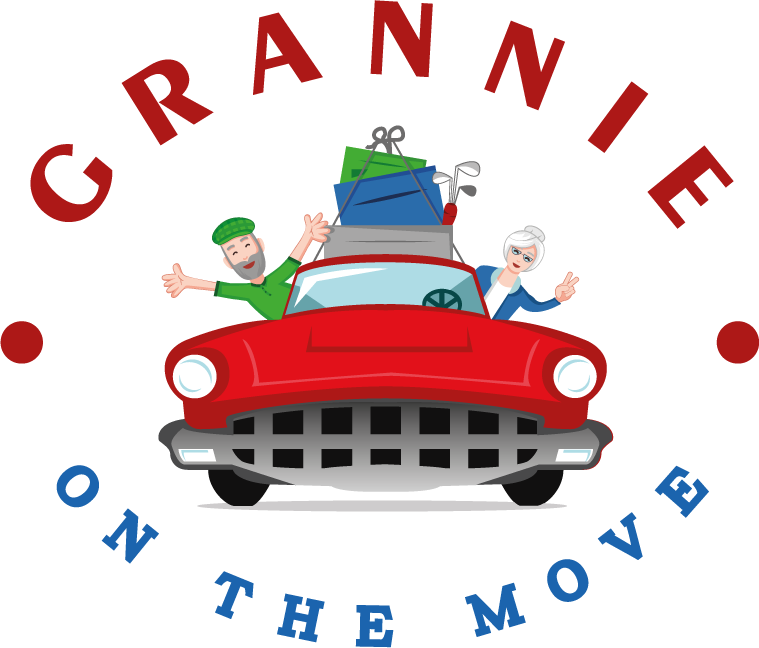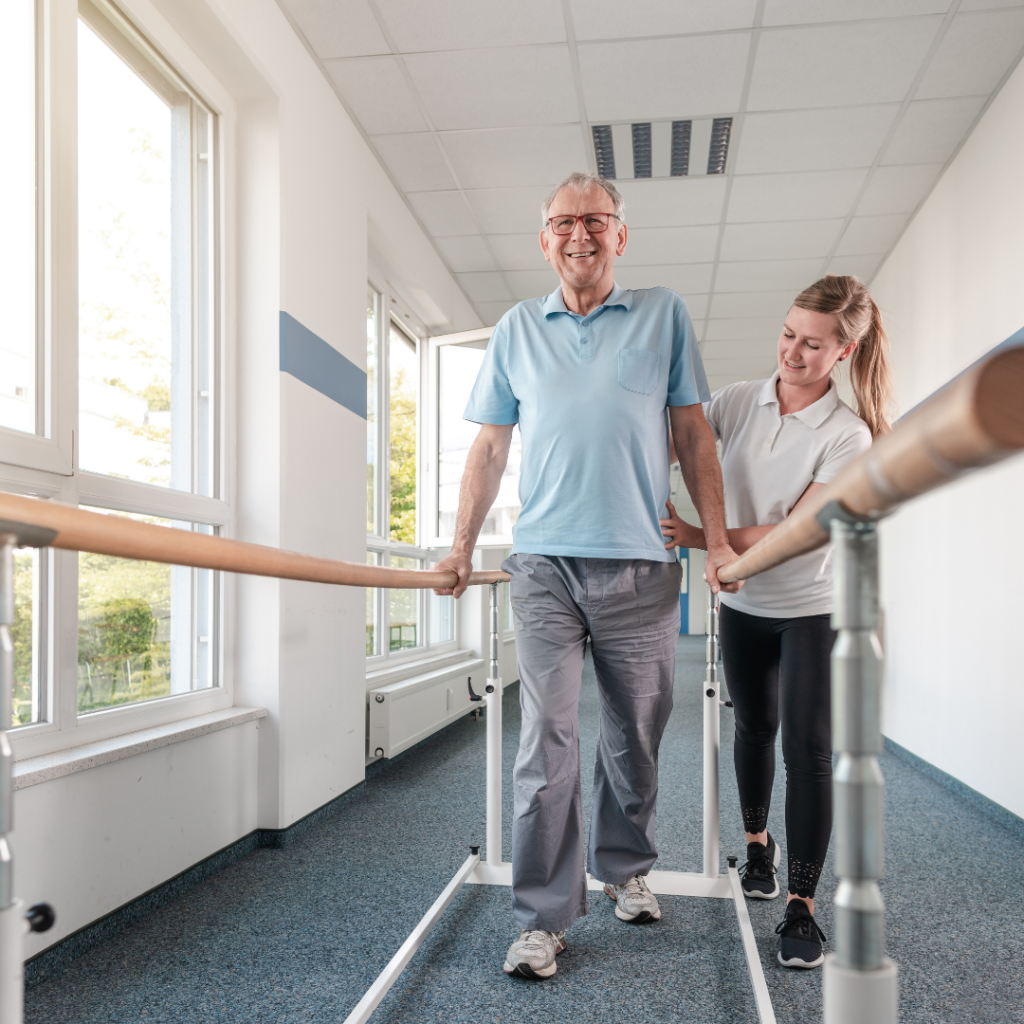Living with dementia doesn’t mean seniors can’t have an active and fulfilling lifestyle. Exercise plays a pivotal role in maintaining their physical health and cognitive function. Seniors with dementia need to engage in activities that they enjoy and that can stimulate their minds.
This article will explore some of the best exercise tips for such individuals, designed to enrich their lives and mitigate some of the symptoms associated with dementia
Benefits of Exercise for Seniors with Dementia
For older people grappling with dementia, exercise is not just about maintaining physical health. It serves as a vital tool in managing and alleviating numerous dementia-related symptoms.
Regular physical activity can enhance mood, decrease anxiety, and improve sleep patterns, contributing to a better quality of life. Notably, the Alzheimer’s Association, a trusted resource, also believes exercises can promote cognitive function, thereby slowing the progression of dementia.
Reducing heart-related illnesses through exercise
Exercise is a strong partner in the fight against heart-related illnesses, which people with dementia are particularly vulnerable to. Regular exercise is important for heart health as it helps to lower blood pressure and cholesterol and regulate blood sugar levels.
Cardio exercises like walking, swimming, or even engaging in household chores can strengthen the heart and improve circulation. These activities can also aid in maintaining a healthy weight, another critical factor in preventing heart disease.
However, any new exercise regimen should be discussed with a doctor or healthcare provider to ensure it is safe and appropriate for your elderly loved one’s current health condition.
Improving quality of life
Participating in regular exercise can help seniors with dementia maintain their sense of independence and self-efficacy, which are essential for emotional well-being.
Therefore, exercise is a holistic approach that promotes seniors’ physical, emotional, and mental health in general, but especially for people with dementia.
Best Exercise Tips
Encouraging Physical Activity: A Family Caregiver’s Role
The most valuable role family caregivers can play in supporting a senior with dementia is to encourage regular physical activity. By providing motivation, guidance, and companionship during exercises, caregivers can significantly enhance the lifestyle of seniors with dementia.
In the following section, we will delve into six of the most helpful strategies family members and caregivers can employ to facilitate and promote physical activity in seniors with dementia.
These tips are designed not only to make exercise more enjoyable for seniors but also to ensure their safety during each activity. You can also check out our list of 10 Engaging Activities for People with Dementia here for more ideas.
1: Encourage stretching
Stretching is a gentle exercise that can significantly benefit seniors, especially those with dementia. It helps maintain flexibility, encourages better posture, and can alleviate joint pain.
As a family member or caregiver, one of the most accessible ways to promote physical activity for seniors with dementia, regardless of their health condition, is to encourage regular movement. Small movements, such as extending arms, rotating shoulders, or bending at the waist, can make a significant difference.
However, ensuring any new stretching regimen suits their current health condition is essential. Always consult a healthcare provider before introducing new physical activities to their routine.
2: Promote Gentle Aerobics
Another suitable form of exercise for seniors with dementia is low-impact aerobics. The beauty of these workouts lies in their adaptability to meet an individual’s abilities and fitness levels.
Activities such as walking, Tai Chi, chair exercises, or water aerobics allow older adults to increase their heart rate safely and improve overall endurance. These routines can significantly benefit cardiovascular health and lung capacity and can also enhance mood by releasing endorphins, known as “feel-good” hormones. Caregivers can make these workouts more enjoyable by incorporating their loved one’s favorite music or participating alongside them.
However, it’s important to remember that any changes to a senior’s fitness regimen should be made under the guidance of a healthcare professional, ensuring it’s safe and beneficial for their specific needs.
3: Encourage Exercise Through Social Activities
Social activities can provide a double benefit for seniors with dementia – they are a great way to encourage physical activity, while combating feelings of isolation and loneliness.
Group exercises like dancing, tai chi classes, or walking groups can be engaging and enjoyable, promoting higher participation rates and adherence to a regular exercise routine.
It’s also crucial that these activities be carried out in a safe and supervised environment. As with any new exercise regimen, always consult a healthcare provider to ensure suitability and safety
4: Suggest low-impact activities that align with hobbies
Low-impact activities that mirror hobbies can provide a comfortable way for seniors with dementia to stay active.
For example, gardening is a fantastic option for seniors with a green thumb. It not only gets them outdoors, breathing fresh air, but also involves a variety of different movements, such as pulling weeds or planting flowers in small pots. These tasks provide low-impact physical activity and cognitive engagement.
Similarly, pet care activities such as feeding, brushing, or walking a pet can also promote gentle, low-stress exercise.
When encouraging these activities, it’s necessary to carefully consider the senior’s current physical and cognitive abilities, ensuring the tasks are not too strenuous or complex. As with all new activities, it’s crucial to consult a healthcare provider to guarantee the suitability and safety of these exercises for the individual.
5: Incorporate Chair Yoga
Chair yoga can be a fun form of exercise for dementia sufferers, as well as a good mood booster. This low-impact activity is designed to promote flexibility, strengthen muscles, and improve balance, all while seated in a chair.
It can be a safe and beneficial way for seniors to engage in physical activity, particularly those with mobility issues. Additionally, chair yoga can help alleviate stress and promote mental well-being through meditative aspects.
Caregivers can participate in chair yoga sessions with their loved ones, making it a shared, enjoyable experience. However, before starting this or any new exercise regimen, obtaining clearance from a healthcare provider is crucial to ensure its appropriateness for the senior’s current health condition.
6: Schedule Regular Family Walks
Regular walks with family members can be an excellent way to encourage physical activity in seniors. A walk around the park or in the neighborhood can provide gentle exercise, fresh air, and a change of scenery, all of which can benefit their overall well-being.
Walking is also a great form of exercise that offers cardiovascular benefits without putting undue stress on the joints. By accompanying your loved one on these walks, you can provide both support and companionship, making the activity more enjoyable and less daunting for the senior.
Moreover, family walks can offer opportunities for social interaction with neighbors or other senior community members, which can positively impact their mental health. As always, it’s important to consult with a healthcare professional before introducing any new exercise routine to ensure its suitability for the senior’s health.
Final thoughts
Staying physically active is not only possible but highly beneficial for seniors living with dementia.
Through a combination of stretching, low-impact aerobics, social activities, hobbies, chair yoga, and regular family walks, these individuals can improve their physical health, cognitive abilities, and overall quality of life.
Yet, it’s crucial to remember that each senior’s capabilities and preferences are unique. It’s essential to tailor these activities to suit their individual needs and always consult a healthcare provider before introducing new routines.
If you’re looking for assistance with senior care, Grannie On The Move is here to help. With our expertise and compassion, we’ll ensure your loved one remains active, involved, and healthy in their golden years.
Contact Grannie On The Move today and let us be your trusted senior care advisor.


